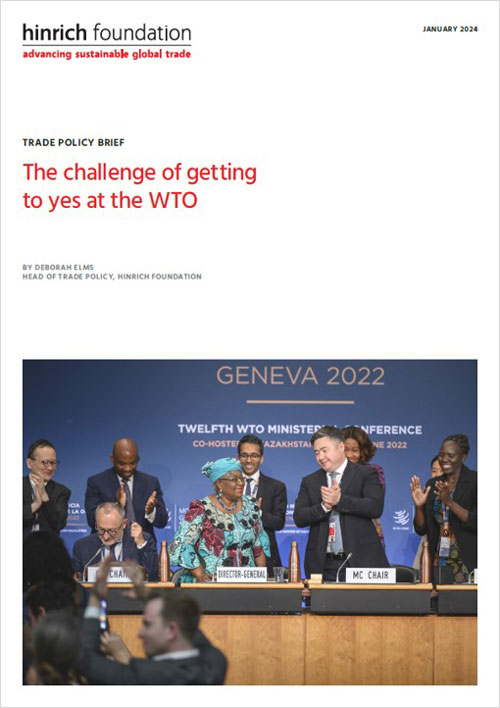Published 09 January 2024
Decision-making within the WTO has been challenging even for smaller subsets of members. While the looming MC13 meeting is bound to raise more questions than answers for the global trading system, the WTO's recent experience with plurilateralism puts forward some reason for optimism.
Imagine that you are trying to get 1641 staff members from a global team to agree on a single lunch order without a boss to decide on the venue and what to eat. This is, roughly, analogous to the situation facing the World Trade Organization (WTO) as members prepare for the next ministerial conference in February.
Consensus-based decision making has been made much more difficult as the WTO expands to include a diverse array of members and the agenda for managing global trade scales up. Over the years, WTO members and its predecessor General Agreement on Tariffs and Trade have experimented with internal arrangements that allow for agreements to proceed without assent from the full membership. The recent experience of the Joint Statement Initiatives, while perhaps delivering underwhelming benefits at the moment, puts forward some reason for optimism.
As the scope of challenges to the trade policy landscape ahead grows, the debates about the “best” or most appropriate mechanism for handling member demands are not going to be resolved soon. In this brief, Hinrich Foundation Trade Policy Head Deborah Elms examines why has it been so difficult for WTO members to agree on much of anything, and current efforts to reach consensus.
***
[1] The WTO admitted two new members at MC13 in February 2024, bringing the total number to 166.
© The Hinrich Foundation. See our website Terms and conditions for our copyright and reprint policy. All statements of fact and the views, conclusions and recommendations expressed in this publication are the sole responsibility of the author(s).






